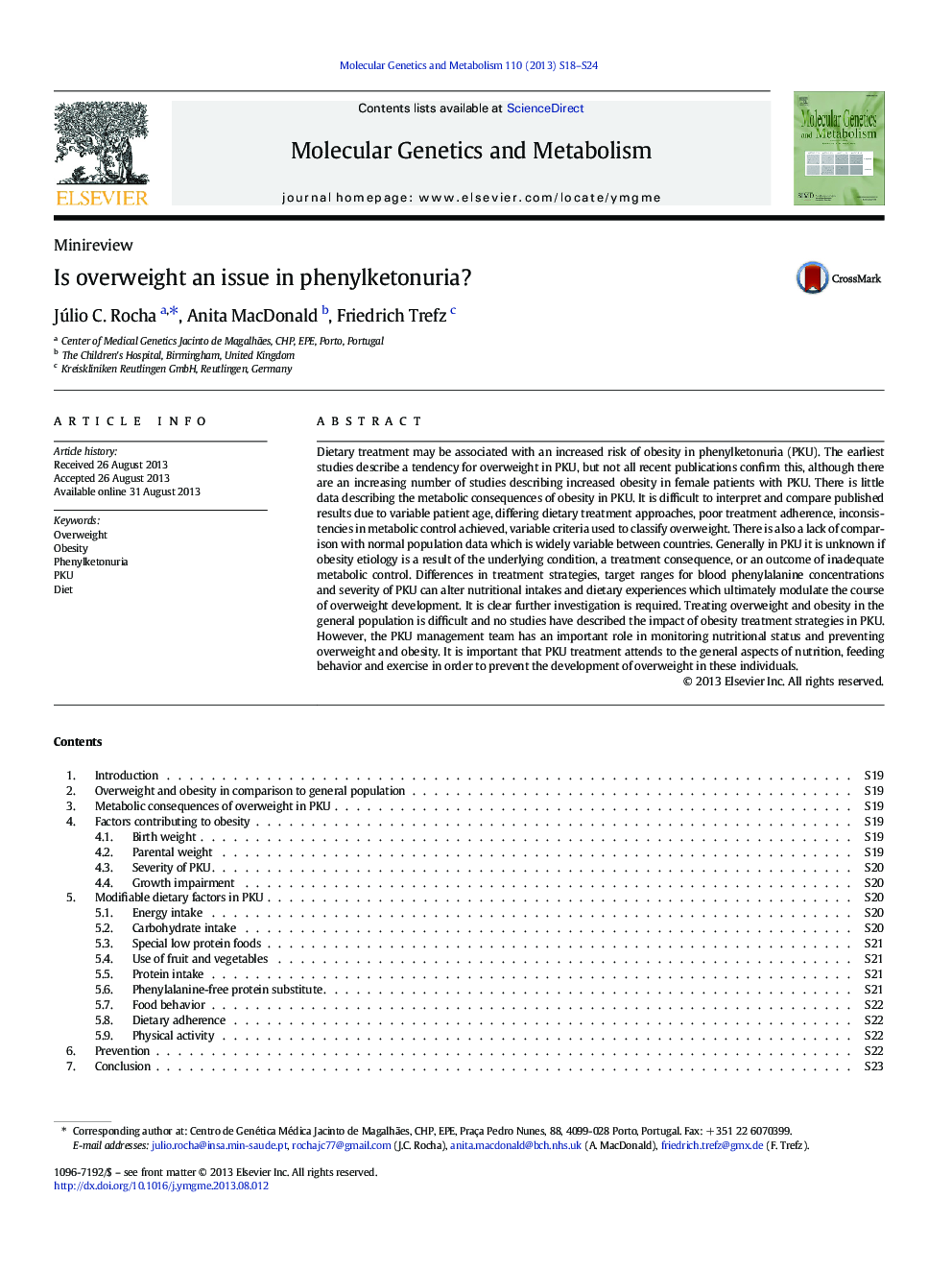| Article ID | Journal | Published Year | Pages | File Type |
|---|---|---|---|---|
| 1998344 | Molecular Genetics and Metabolism | 2013 | 7 Pages |
Dietary treatment may be associated with an increased risk of obesity in phenylketonuria (PKU). The earliest studies describe a tendency for overweight in PKU, but not all recent publications confirm this, although there are an increasing number of studies describing increased obesity in female patients with PKU. There is little data describing the metabolic consequences of obesity in PKU. It is difficult to interpret and compare published results due to variable patient age, differing dietary treatment approaches, poor treatment adherence, inconsistencies in metabolic control achieved, variable criteria used to classify overweight. There is also a lack of comparison with normal population data which is widely variable between countries. Generally in PKU it is unknown if obesity etiology is a result of the underlying condition, a treatment consequence, or an outcome of inadequate metabolic control. Differences in treatment strategies, target ranges for blood phenylalanine concentrations and severity of PKU can alter nutritional intakes and dietary experiences which ultimately modulate the course of overweight development. It is clear further investigation is required. Treating overweight and obesity in the general population is difficult and no studies have described the impact of obesity treatment strategies in PKU. However, the PKU management team has an important role in monitoring nutritional status and preventing overweight and obesity. It is important that PKU treatment attends to the general aspects of nutrition, feeding behavior and exercise in order to prevent the development of overweight in these individuals.
